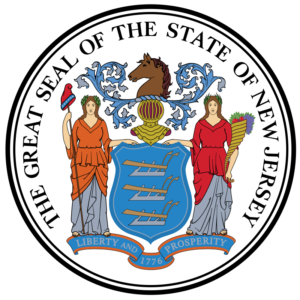Ward Law LLC is dedicated to keeping our clients informed about all things COVID-19 related. Our business is to ensure that you have all the information you need to keep your business going. In that regard, please read below for updates on the State of New Jersey.
Handling Employee Requests for Work-From-Home and Time-Off Due to COVID-19 Fears
Are New Jersey employers required to grant work-from-home (“WFH”) or grant sick-leave requests to employees who are afraid to come to work out of fear of contracting COVID-19? As always, it depends.  Most employers are aware of the recently passed Family First Coronavirus Response Act (“FFCRA”). However, employers also need to be mindful of state laws, local laws, and other recent Executive Orders. These include the New Jersey Earned Sick Leave Law (“ESLL”) and recent executive orders passed by Governor Murphy.
Most employers are aware of the recently passed Family First Coronavirus Response Act (“FFCRA”). However, employers also need to be mindful of state laws, local laws, and other recent Executive Orders. These include the New Jersey Earned Sick Leave Law (“ESLL”) and recent executive orders passed by Governor Murphy.
Let’s start with WFH requests. Pursuant to Gov. Murphy’s Executive Order 107, all non-retail businesses must accommodate employee requests to WFH if practicable. In other words, if you can do, then you must do it. End of debate.
However, the situation is a little trickier for employees who need to be physically present at work to do their job duties. Executive Order 107 lists the following employees as examples:
- cashiers or store clerks
- construction workers
- utility workers
- repair workers
- warehouse workers
- lab researchers
- information technology maintenance workers
Because being physically present at work is an essential part of doing these jobs, employers are not required to grant WFH requests for these employees. However, Executive Order 107 states that employers “must reduce staff on site to the minimal number necessary to ensure critical operations can continue.”
What about employees who need to be physically present to perform their work and are requesting time-off out of fear of coming to work? The answer is… debatable. Similar to the FFCRA, the New Jersey ESLL requires New Jersey employers provide 40 hours of earned paid sick leave to employees to use: (1) if they are sick; (2) to care for a sick family member; or (3) to care for a child whose school or child care is closed due to a public health emergency. Therefore, it seems that neither the FFCRA nor ESLL require an employer to allow an employee to use sick-time solely out of fear of contracting COVID-19.
However, enter the New Jersey Department of Labor & Workforce Development (“NJ DOL”). The NJ DOL recently created this handy chart to help people navigate the myriad of New Jersey state employment laws as they apply to COVID-19. According to the DOL’s chart, the ESLL law covers a worker who is afraid of gathering in a group and refusing to go to work. The DOL’s chart is at odds with the plain language of the ESLL statute. And, of course, there is no precedential court decision to clarify the answer. So, what’s an employer to do? Tread carefully and contact an attorney well-versed in New Jersey employment law for guidance or if you have questions.
Christopher M. Curci, Esq. advises corporate clients on all aspects of labor and employment law in Pennsylvania and New Jersey. He can be reached at ccurci@thewardlaw.com and 215-647-6603.
